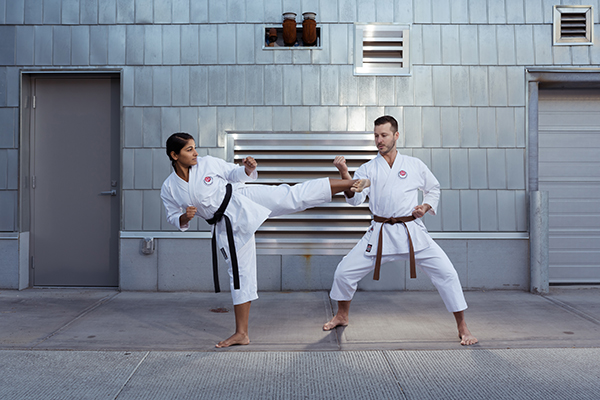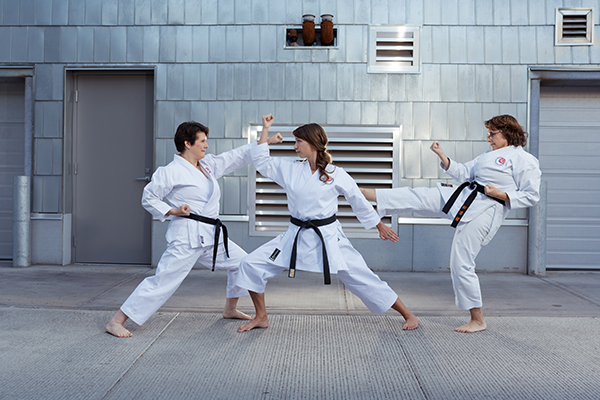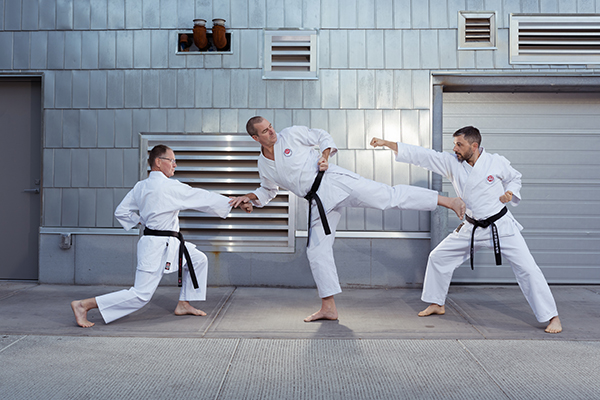Training - What to Expect
Training
Training in Shotokan Karate is generally made up of three elements, Kihon, Kata and Kumite.

Kihon (basics)
These are the core for good Shotokan Karate. Basics are made up of punches, blocks and kicks and are often used in simple combinations for lower belts and more complicated for the higher belts. Although Shotokan Karate is repetitive, it continues to challenge the mind and body when rising through the ranks. Speed, sharpness and strength are tuned in the basic techniques and you will learn to use your whole body to deliver a punch or to block an attack. You will also learn control. In training, although we counter attack with a fully committed punch or kick it stops short of the target thus showing 'control'.
Kata (forms)
There are 26 kata in Shotokan Karate and you will eventually need to know them all as you progress through the ranks of black belt. As a lower grade student there is a different kata required at every grading to progress to the next belt. Normally students will learn at least one or two kata’s ahead of their next grading. Kata is an important part of Shotokan Karate training and is normally practiced at every training session. See all of the kata’s by clicking here.
"To practice kata is not to memorize an order. You must find the kata that work for you, understand them, digest them and stick with them for life".
Master Gichin Funakoshi


Kumite (Sparring)
Kumite is a general word which refers to forms of sparring. There are different ranges of sparring depending on your rank and experience. Kumite uses all the skills from Basics and helps to develop your speed, strength and control. Beginners practice 3 step sparring, where the defender steps back each time and blockes the attack, then delivers a counter attack on the last technique. More experienced karate-ka will practice Jiyu Ippon Kumite(semi-free) and Jiyu Kumite (free). Whilst it is encouraged to show full commitment in an attack, injuring your sparring partner is discouraged therefore control is required. Using control demonstrates the ability to deliver a devastating blow without actually hurting or injuring a fellow student.
"Karate-Do strives internally to train the mind to develop a clear conscience, enabling one to face the world honestly, while externally developing strength to the point where one may overcome even ferocious wild animals. Mind and technique become one in true karate".
Master Gichin Funakoshi